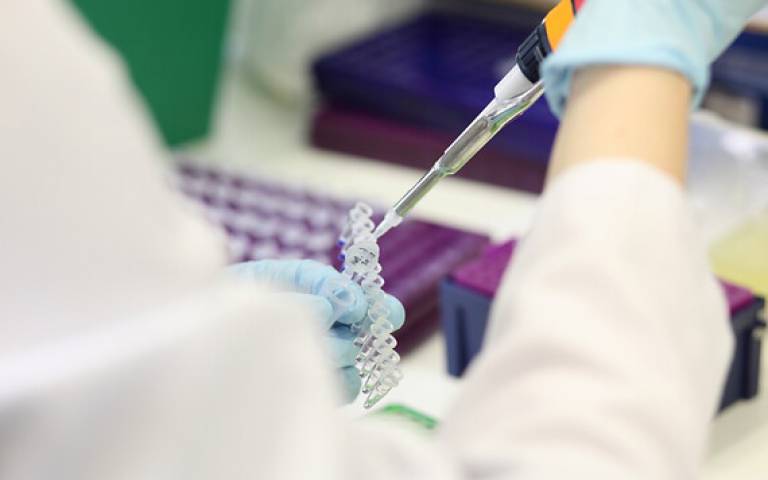Funding awarded to UCL-led consortium focused on mitochondrial dysfunction
20 April 2022
Dr Robert Pitceathly (UCL Queen Square Institute of Neurology) is leading a consortium (MitoCluster) that has been awarded a £2.93m Medical Research Council (MRC) grant to advance research into human conditions linked with mitochondrial dysfunction.

MitoCluster is one of seven groups within the new MRC National Mouse Genetics Network, whose overarching aim is to realise the potential of complex genetic engineered mouse models in predicting therapies for human diseases.
Mitochondria are tiny energy generators that exist in large numbers inside human cells. A large group of genetic disorders, called primary mitochondrial diseases (PMDs), and many common conditions, including cancer and dementia, are linked to faulty mitochondria.
MitoCluster connects world-leading expertise in PMDs, mitochondrial biology, and mouse models from UCL, the Mary Lyon Centre at MRC Harwell, Newcastle University, the MRC Mitochondrial Biology Unit, the University of Cambridge, the University of Padua, and EMBL’s European Bioinformatics Institute (EMBL-EBI).
The consortium will undertake research in mice to better understand how and why faulty mitochondria cause human diseases, while finding new ways to measure these disorders over time, and developing new treatments that will progress to human trials in future. Recent advances by the Mary Lyon Centre in techniques to monitor remotely any subtle changes in mouse development, movement, and behaviour in their “home cage” environment will allow the team to study key aspects of these conditions in mice more accurately and humanely.
Professor Michael Hanna, Director of the UCL Queen Square Institute of Neurology, said:
“I am delighted Robert Pitceathly, MRC Clinician Scientist and Consultant Neurologist, will lead this important £2.93m MRC award to form a national consortium of investigators and to develop mouse models to help us more deeply understand neurological and other human diseases caused by mitochondrial dysfunction. There are excellent, internationally leading research teams in mitochondrial research at the Queen Square Institute of Neurology and across UCL who can potentially benefit from this initiative and ultimately enable translation into benefits for patients with incurable diseases.”
Dr Robert Pitceathly, MitoCluster Lead, said:
“Our MRC award will help us better understand diseases linked with mitochondrial dysfunction, including mitochondrial diseases, cancer, and dementia. Ultimately, our aim is to develop treatments for these disorders. We are also looking forward to working closely with the Mary Lyon Centre at MRC Harwell, and with other colleagues across the MRC National Mouse Genetics Network as part of this exciting initiative.”
Related:
- Dr Robert Pitceathly's research profile
- Pitceathly Research Group
- UCL Queen Square Institute of Neurology
- The MRC National Mouse Genetics Network
- The Mary Lyon Centre at MRC Harwell
- The International Centre for Genomic Medicine in Neuromuscular Diseases
 Close
Close

